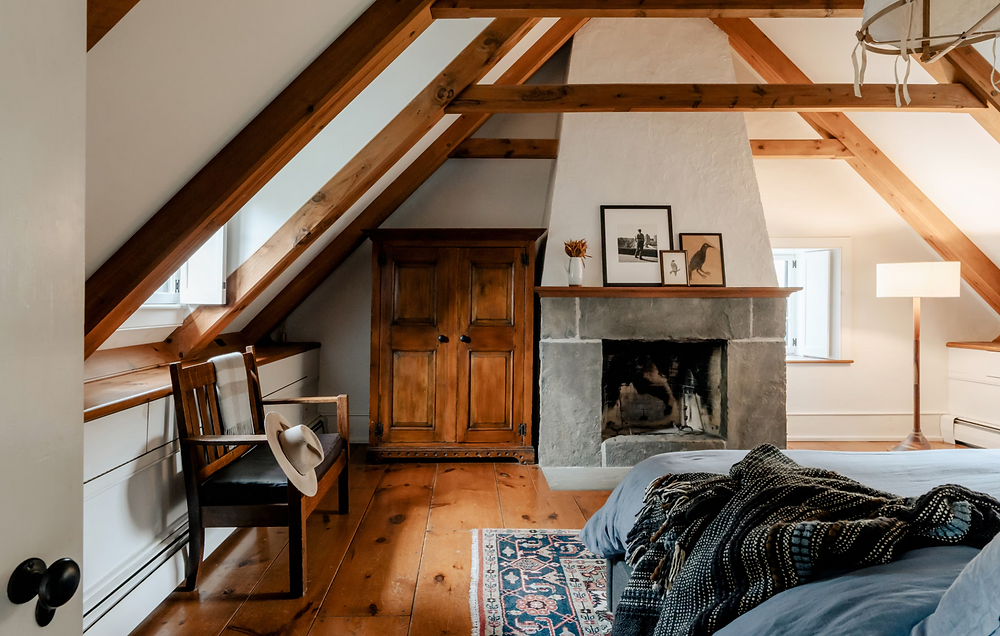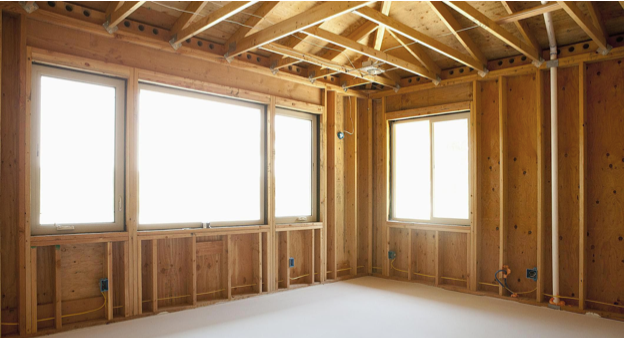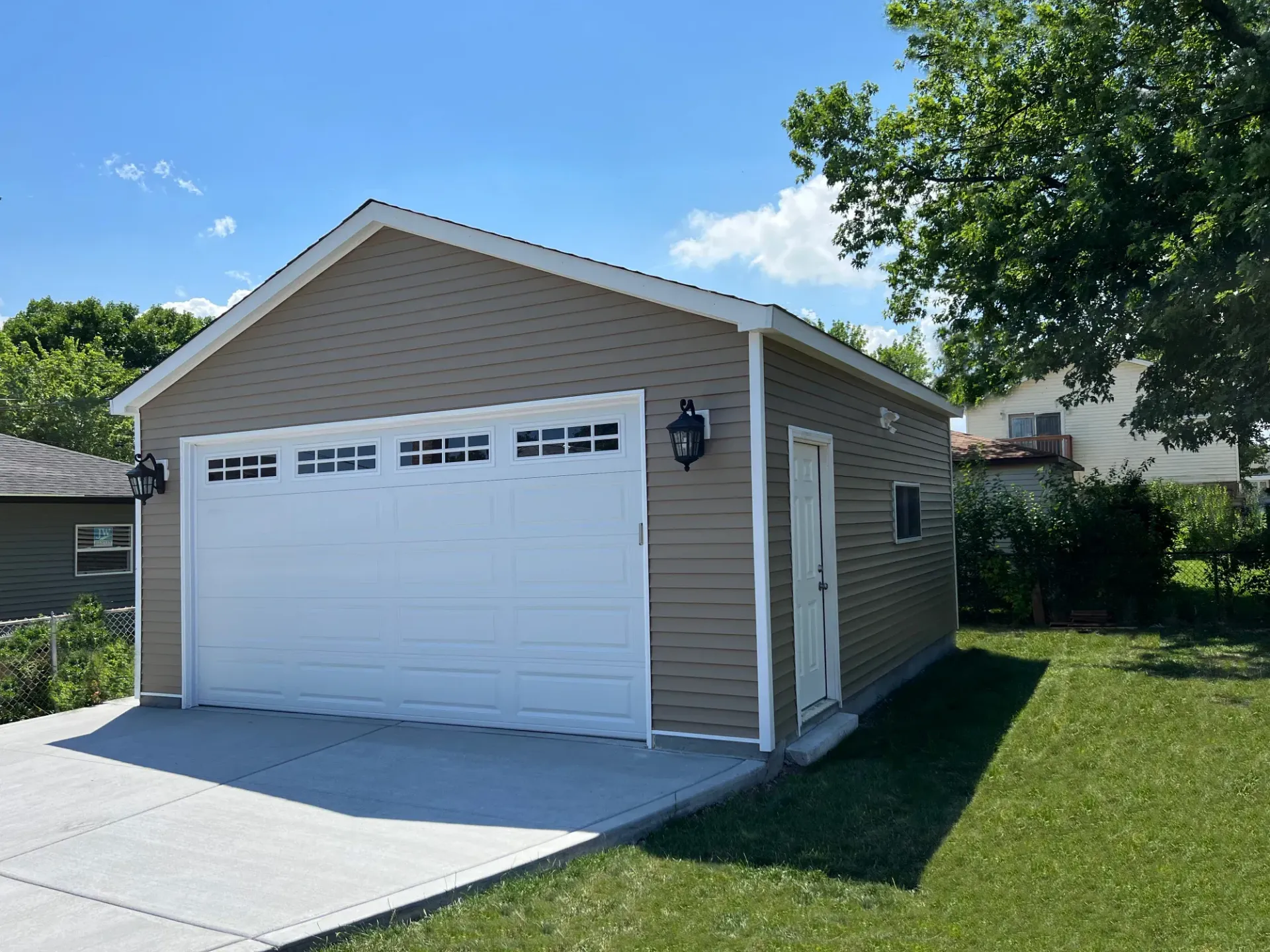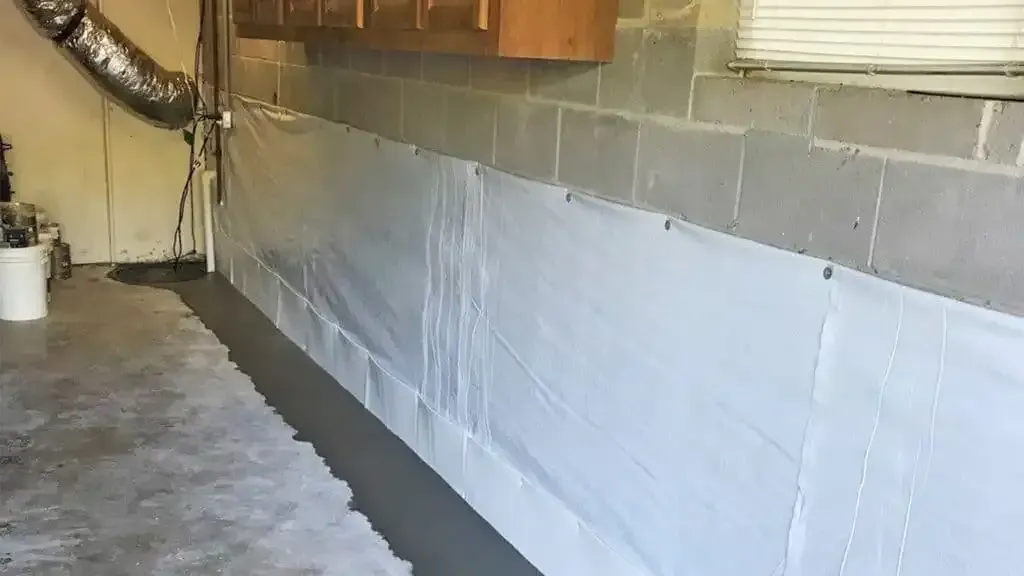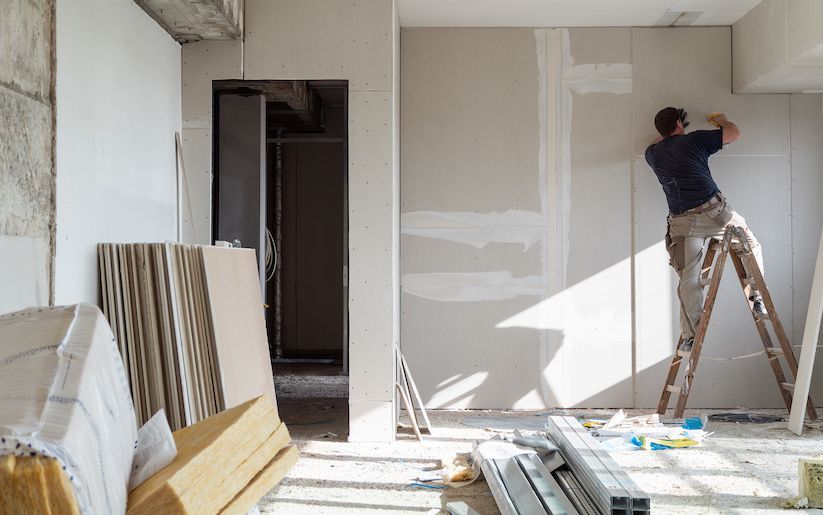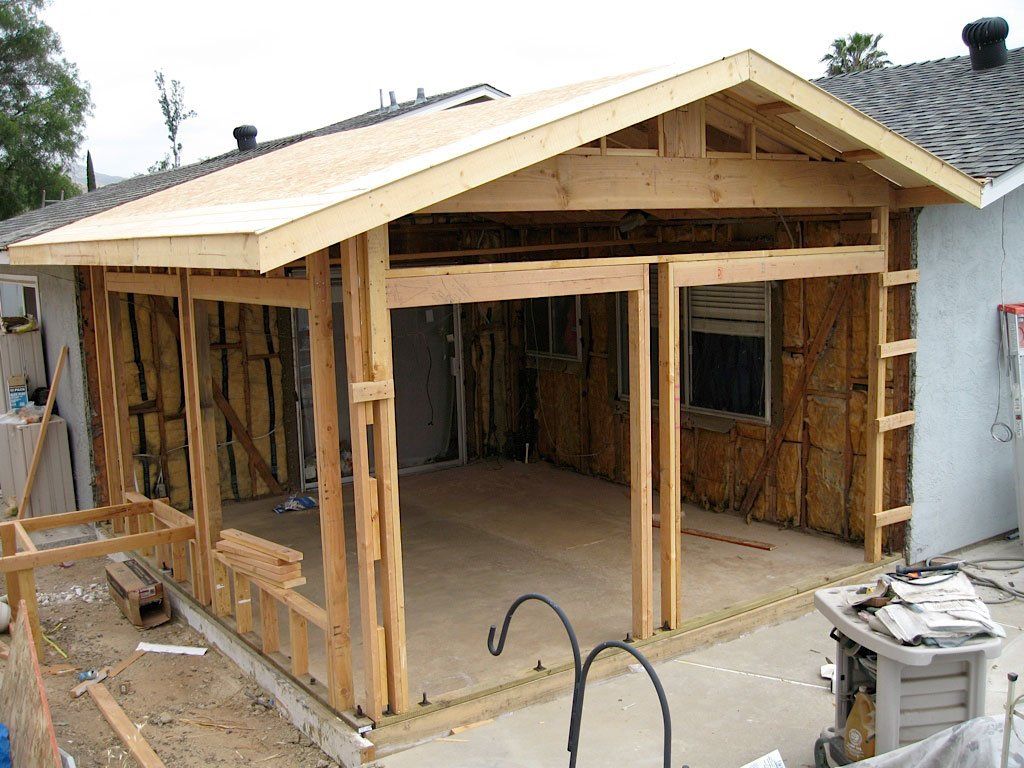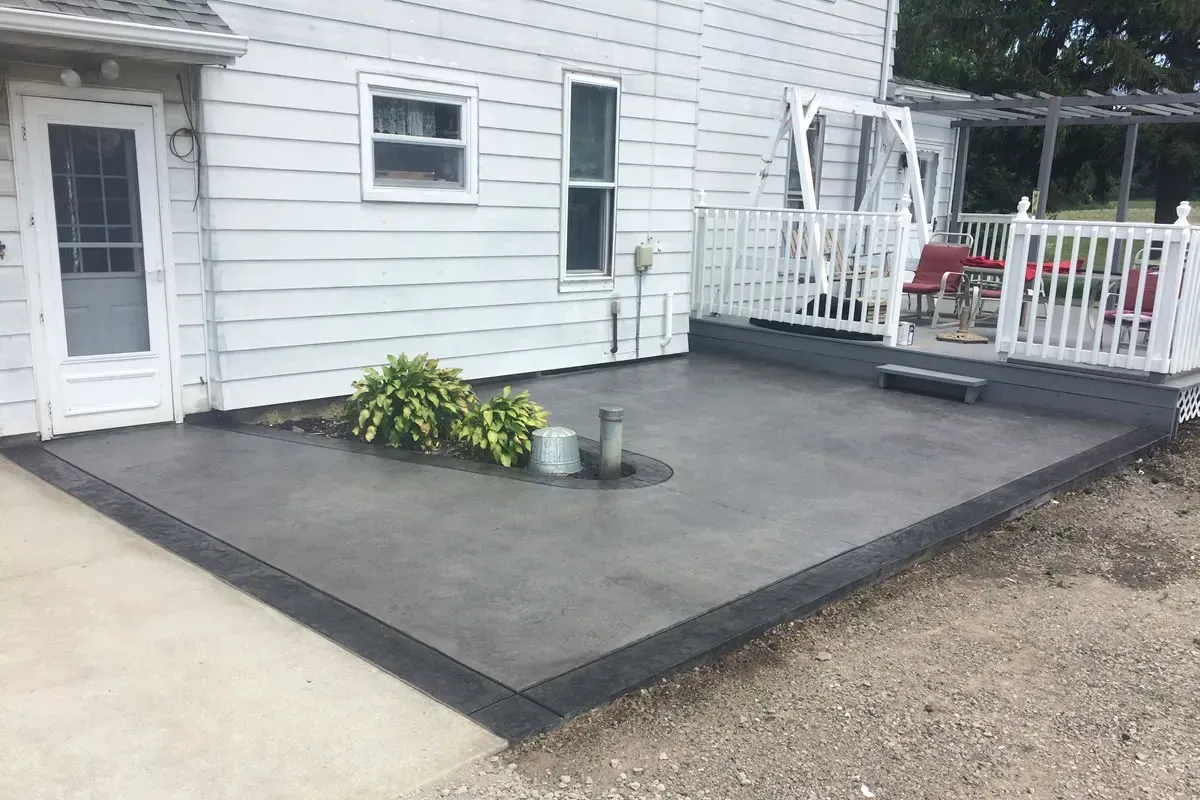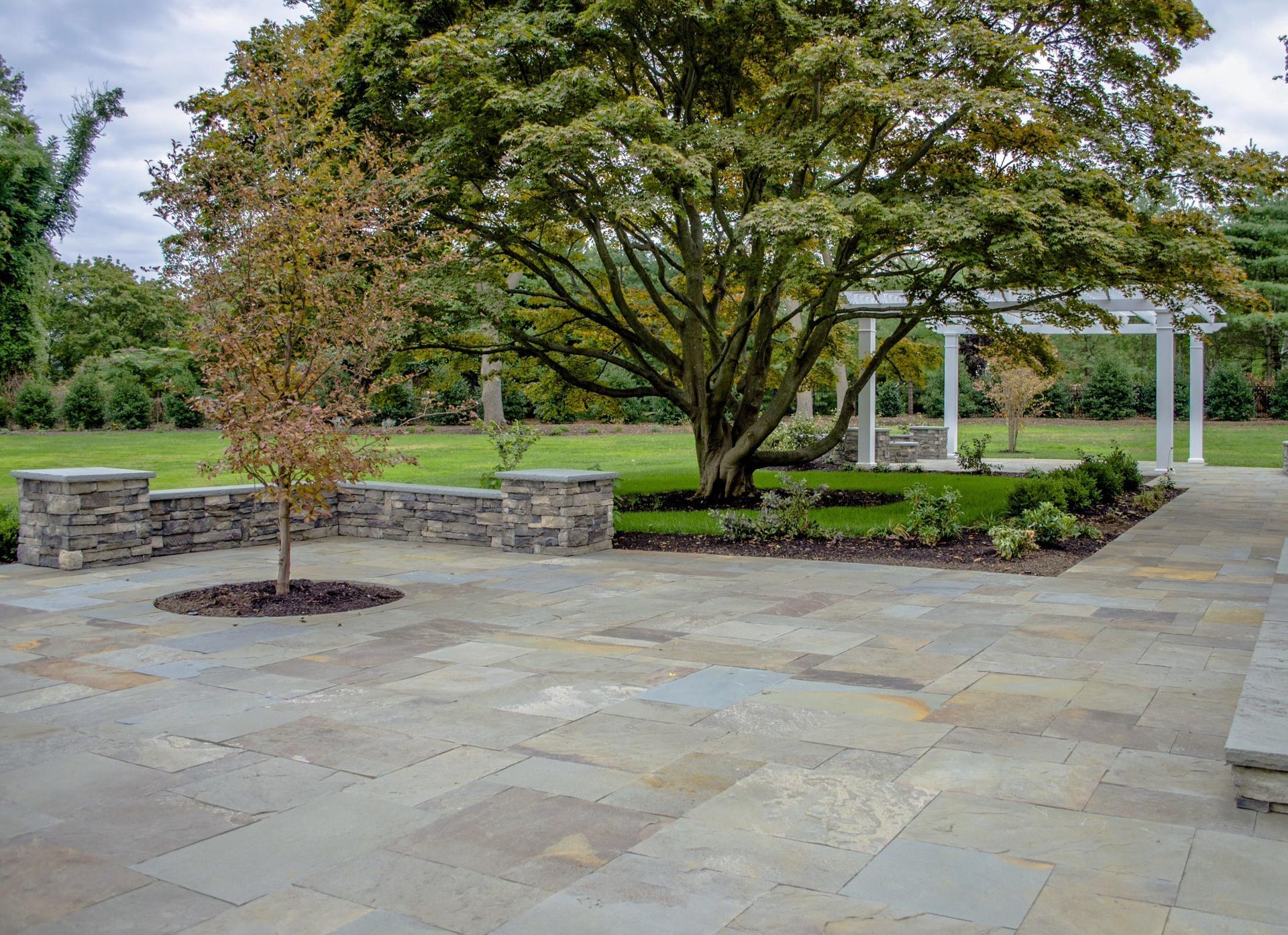DIY vs. Professional Christmas Light Installation in RI
As the holiday season approaches, Rhode Island homeowners face an important decision: should you tackle Christmas light installation yourself, or hire a professional service? While the DIY approach might seem like a cost-saving measure, Rhode Island's unique weather challenges, historic architecture, and safety considerations make this decision more complex than it appears at first glance.
This comprehensive comparison will help you understand the true costs, benefits, and considerations for both DIY and professional Christmas light installation specifically for Rhode Island properties.
The Real Costs: DIY Christmas Lights vs. Professional Installation in Rhode Island
DIY Christmas Light Installation Costs in Rhode Island
When calculating the true expense of installing your own holiday lights in Rhode Island, consider these often-overlooked factors:
Equipment Investments
- Quality Outdoor Lights: $100-400 for commercial-grade strands resistant to Rhode Island's wet climate
- Extension Cords & Timers: $50-150 for weather-resistant options
- Installation Tools: $75-200 for clips, fasteners, and measuring tools
- Ladder/Safety Equipment: $150-300 for proper height and stability on uneven Rhode Island terrain
Hidden Expenses
- Replacement Costs: Typically 20-30% of lights need replacement each season due to New England winter damage
- Storage Solutions: $50-100 for proper off-season storage bins and organizers
- Higher Electric Bills: Often $50-100 additional monthly during display period with less efficient setups
- Potential Property Repairs: Gutter, roof, or siding damage from improper installation
Time Investment
- Installation Hours: 8-20 hours for average Rhode Island home (varies by property size)
- Troubleshooting Time: 2-5 hours addressing inevitable issues
- Maintenance Hours: 5-10 hours throughout season adjusting after storms
- Removal Time: 4-8 hours taking down in January's cold weather
Professional Christmas Light Installation Costs in Rhode Island
Professional holiday lighting services in Rhode Island typically structure their pricing as follows:
Package Options
- Basic Installation: $500-1,000 for roofline and entrance focus
- Standard Package: $1,000-2,000 for comprehensive home coverage
- Premium Design: $2,000-3,500+ for elaborate custom displays
What's Typically Included
- Professional-Grade Lights: Higher quality than retail options
- Custom Design: Property-specific planning
- Complete Installation: All materials and labor
- Season-Long Service: Maintenance throughout winter
- Post-Season Removal: Complete takedown
- Optional Storage: Professional organizing and storage
Safety Considerations for Rhode Island Holiday Lighting
DIY Safety Risks in Rhode Island
Rhode Island's winter conditions create specific safety hazards:
- Ice and Snow: Rhode Island's fluctuating winter temperatures create treacherous ladder conditions
- Coastal Wind Exposure: Particularly dangerous in South County and Newport areas
- Electrical Hazards: Increased risk with Rhode Island's wet winter climate
- Older Home Challenges: Electrical systems in historic Providence, Newport, and Bristol homes often require special consideration
According to the U.S. Consumer Product Safety Commission, thousands of people are injured each year during holiday decorating, with ladder falls being the most common accident.
Professional Safety Advantages
Licensed Rhode Island Christmas light installation companies offer:
- Trained Installation Teams: Experienced with Rhode Island's specific challenges
- Insurance Coverage: Protection against potential accidents
- Proper Equipment: Commercial-grade ladders and safety gear
- Electrical Expertise: Understanding of local code requirements
- Weather Monitoring: Installation timed around Rhode Island's unpredictable winter conditions
Quality and Appearance Comparison
The DIY Aesthetic Challenge
Many Rhode Island homeowners find that DIY installations fall short in several areas:
- Uneven Light Distribution: Difficult to achieve professional spacing and alignment
- Poor Light Quality: Retail lights often appear dimmer and less vibrant
- Inconsistent Colors: Mixed manufacturers leading to varied color temperatures
- Tangled or Sagging Lines: Improper fastening techniques
- Weather Damage: Faster deterioration due to inadequate weatherproofing
Professional Design Excellence
Rhode Island Christmas light professionals deliver:
- Custom Design Plans: Tailored to your specific property architecture
- Commercial-Grade Materials: Brighter, longer-lasting LED technology
- Proper Installation Techniques: Even spacing, secure fastening, weatherproof connections
- Color Consistency: Professionally matched lighting throughout display
- Architectural Enhancement: Lighting that highlights your home's best features
Time Investment: DIY vs. Professional Christmas Light Installation
DIY Time Requirements in Rhode Island
Installing Christmas lights yourself in Rhode Island involves:
- Planning Phase: 2-3 hours measuring, calculating needs, and shopping
- Installation Weekend: Full weekend (or multiple weekends) depending on complexity
- Mid-Season Maintenance: Several hours fixing storm damage and replacing burnt bulbs
- Post-Holiday Removal: 4-8 hours in cold January weather
- Annual Storage Organization: 2-3 hours properly storing for next season
Professional Time Savings
With professional installation, Rhode Island homeowners enjoy:
- Zero Installation Time: Complete installation while you're at work
- No Weather Delays: Professionals work around Rhode Island's winter conditions
- Immediate Problem Resolution: Quick response to any issues throughout season
- Effortless Removal: No post-holiday cleanup time required
Rhode Island-Specific Considerations
Weather Challenges
Rhode Island's unique climate presents specific challenges:
- Coastal Salt Air: Corrosive environment requires marine-grade materials (Newport, Narragansett, Bristol)
- Nor'easter Preparation: Strong wind resistance essential throughout the state
- Ice Storm Damage: Common Rhode Island winter weather that destroys improperly installed lights
- Wet Snow Weight: Heavy, wet snow can pull down inadequately secured installations
Property Types in Rhode Island
Different Rhode Island homes require specialized approaches:
Historic Properties (Providence, Newport, Bristol)
- Preservation Requirements: Historic district regulations may limit installation methods
- Architectural Sensitivity: Period-appropriate lighting designs
- Structural Considerations: Older homes requiring careful fastening techniques
Coastal Properties (South County, Newport County)
- Wind Resistance: Enhanced fastening for ocean exposure
- Salt Air Protection: Corrosion-resistant materials essential
- Storm Preparation: Rapid takedown capabilities for hurricane season
Urban Properties (Providence, Cranston, Pawtucket)
- Space Limitations: Creative solutions for compact lots
- Neighbor Considerations: Light spillover management
- Security Concerns: Vandalism-resistant installation techniques
When DIY Makes Sense for Rhode Island Homeowners
DIY Christmas light installation might be appropriate if you:
- Have extensive electrical and ladder experience
- Own a single-story ranch with easy roof access
- Live in an area with minimal winter weather exposure
- Have ample time for installation, maintenance, and removal
- Enjoy hands-on holiday projects as a family tradition
- Have proper storage space and organizational systems
When Professional Installation Is Worth It for Rhode Island Properties
Consider professional Christmas light installation if you:
- Own a multi-story or complex architectural home
- Live in exposed coastal areas of Rhode Island
- Have limited time during busy holiday season
- Want an elaborate, custom-designed display
- Prefer to avoid safety risks of ladder work in winter
- Value the convenience of full-service installation and removal
- Want the highest quality materials and design
Making Your Decision: Cost-Benefit Analysis for Rhode Island Homeowners
Three-Year Cost Comparison
When comparing DIY vs. professional installation over three years:
DIY Total Cost Estimate:
- Initial equipment: $500-800
- Annual replacements: $150-250/year
- Time value (at $25/hour): $1,000-1,500/year
- Three-year total: $2,000-3,500
Professional Service:
- Annual service: $800-1,500/year
- No equipment or time investment
- Three-year total: $2,400-4,500
Value-Added Benefits of Professional Installation
Professional services provide additional value:
- Insurance Protection: Coverage for potential accidents
- Warranty Service: Replacement guarantees throughout season
- Design Expertise: Enhanced curb appeal and property value
- Stress Reduction: Elimination of holiday installation pressure
- Seasonal Flexibility: Easy upgrades or changes each year
Popular Rhode Island Areas for Professional Christmas Light Installation
Our professional services are especially popular in:
- Providence County: Providence, Cranston, Warwick, Cumberland
- Newport County: Newport, Middletown, Portsmouth, Jamestown
- Washington County: South Kingstown, Narragansett, Westerly
- Kent County: East Greenwich, West Warwick, Coventry
- Bristol County: Bristol, Warren, Barrington
Questions to Ask When Choosing Professional Christmas Light Installation in Rhode Island
If you decide on professional installation, ask potential companies:
- How many years have you been installing Christmas lights in Rhode Island?
- Are you licensed and insured for work in Rhode Island?
- What type of warranties do you provide on materials and installation?
- How do you handle storm damage during Rhode Island winters?
- Can you provide references from other Rhode Island customers?
- What is your takedown and storage process?
- Do you offer multi-year contracts with pricing advantages?
Red Flags to Avoid When Hiring Rhode Island Christmas Light Installers
Be cautious of companies that:
- Lack proper Rhode Island licensing or insurance
- Provide quotes significantly below or above market rates
- Cannot provide local Rhode Island references
- Don't offer written contracts with detailed service descriptions
- Use door-to-door sales tactics without established local presence
- Cannot explain their installation techniques or safety procedures
Making the Best Choice for Your Rhode Island Home
The decision between DIY and professional Christmas light installation depends on your specific situation, but for most Rhode Island homeowners, the combination of safety concerns, time constraints, and quality results makes professional installation a worthwhile investment.
Consider your family's schedule, your comfort level with ladder work in winter conditions, and the complexity of your desired display. Remember that professional installation isn't just about convenience - it's about creating a stunning holiday display that enhances your Rhode Island home while keeping your family safe.
Whether you choose DIY or professional installation, the goal is the same: creating a beautiful holiday atmosphere that brings joy to your family and adds to Rhode Island's festive community spirit throughout the season.
Get Your Rhode Island Christmas Light Installation Quote Today
Ready to transform your Rhode Island home with professional Christmas lights? Contact our experienced team for a free consultation and custom quote. We serve homeowners throughout Providence, Newport, Warwick, and all surrounding Rhode Island communities with safe, beautiful, and hassle-free holiday lighting solutions.
Don't spend your precious holiday time on ladders - spend it with family while we create the perfect Christmas light display for your Rhode Island home.


